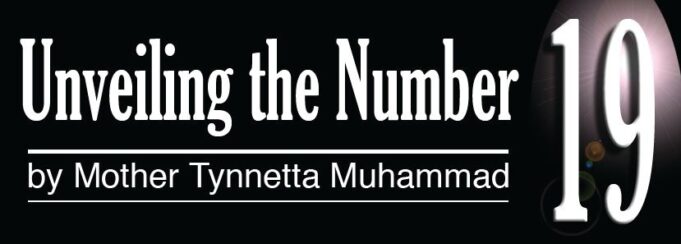[Editor’s Note: This article is a reprint that was published online on July 31, 2003, and The Final Call will continue to publish articles written by our late and dear Mother Tynnetta Muhammad.]
“(This is) a Book that We have revealed to thee abounding in good, that they may ponder over its verses, and that the men of understanding may mind. And We gave to David Solomon. Most excellent the servant! Surely he ever turned (to Allah).” –Holy Qur’an, Surah 38, verses 29 & 30
The setting for the second and concluding appendage to the series of articles on King Solomon, in review from Holy Qur’an and Bible, is Jerusalem, which is the third most Holy City to Muslims, following the Holy Cities of Mecca and Madinah in Arabia.
This study will cover the eight chapters of the Song of Solomon, containing 13 Canticles, or lyrics, presented in operatic style, which describe the love of Solomon for a certain Shulamite girl or maiden who resides near Jerusalem. The enigma of this small and mysterious book of Scripture has been interpreted by scholars as an analogy describing God’s Love for His Covenanted people, Israel, stylized as God’s wife, or as the Church Bride of Christ.
However, with all its magic and romance, let us begin this study from another perspective with a few questions. If these musical canticles refer to Israel as we know it, why is the young bride, described as a Shulamite girl, found describing herself as being black, but comely, as she addresses the daughters of Jerusalem? Why does she compare herself to the tents of Kedar, which represent Arabia, and to the curtains of Solomon?
Who are the daughters of Jerusalem being addressed in the final verse, numbered 6, of the first canticle or lyric? She speaks to them in the following words: “Look not upon me because I am black, because the sun hath looked upon me. My mother’s children were angry with me; they made me the keeper of the vineyards, but mine own vineyard have I not kept.” Does this not indicate that she was being held captive in some sort of servitude bondage?
Solomon responds to her condition as in a riddle and compares her to a company of horses in Pharoah’s chariots. Here, we have a hint of her lineage, which connects her to Egypt; and from her own words, she links herself to the ancient site of Arabia, whose indigenous people are of black origin.
Is there a genealogic link in her heritage with that of the Queen of Sheba and the lost and found Tribe of Shabazz, who were apparently lost from history and the foundation of the world, until the Coming of the Great Mahdi, Master W. Fard Muhammad to America, under the Sign of Solomon, to restore them to their former glory and greatness at the top of civilization after thousands of Millennia?
The Shulamite maiden was apparently hiding in the clefts of the rock and in the secret places of the stairs away from the watchmen of the city and the daughters of Jerusalem for good reason. She was not to be seen or recognized, while in servitude bondage being subject to others.
By the time we reach the 9th Canticle, we find the two espoused to marry under the matrimonial titles of the Bridegroom and the Bride. She is called forth by Solomon to enter Jerusalem, while the daughters of Jerusalem are onlookers and also describe her exquisite beauty and origin as a Prince’s daughter, whose hair is described as being of the color purple, which is synonymous with the royal color black.
In other words, this woman represents the Black Nation and Original Tribe of Shabazz who first settled along the banks of the Nile and at the ancient site of Arabia. So whether we are referring to the Queen of Sheba or the Shulamite girl, a Prince’s daughter, we are describing the Original People of Africa, Saudi Arabia and Palestine who is favored by King Solomon, as the choice one of her mother, to become his bride, his lost people returning to God.
Lest we think that David and Solomon were not favored by God because of the disclosure of some aspects of their domestic life, we have but to read the following verses revealed in Surah 38:35-40 of the Holy Qur’an.
“He said: My Lord, forgive me and grant me a kingdom which is not fit for any one after me; surely Thou art the Great Giver. So We made the wind subservient to him; it made his command to run gently wherever he desired, And the devils, every builder, and diver, And others fettered in chains. This is Our free gift, so give freely or withhold, without reckoning. And surely he had a nearness to Us and an excellent resort.”
To be continued.













